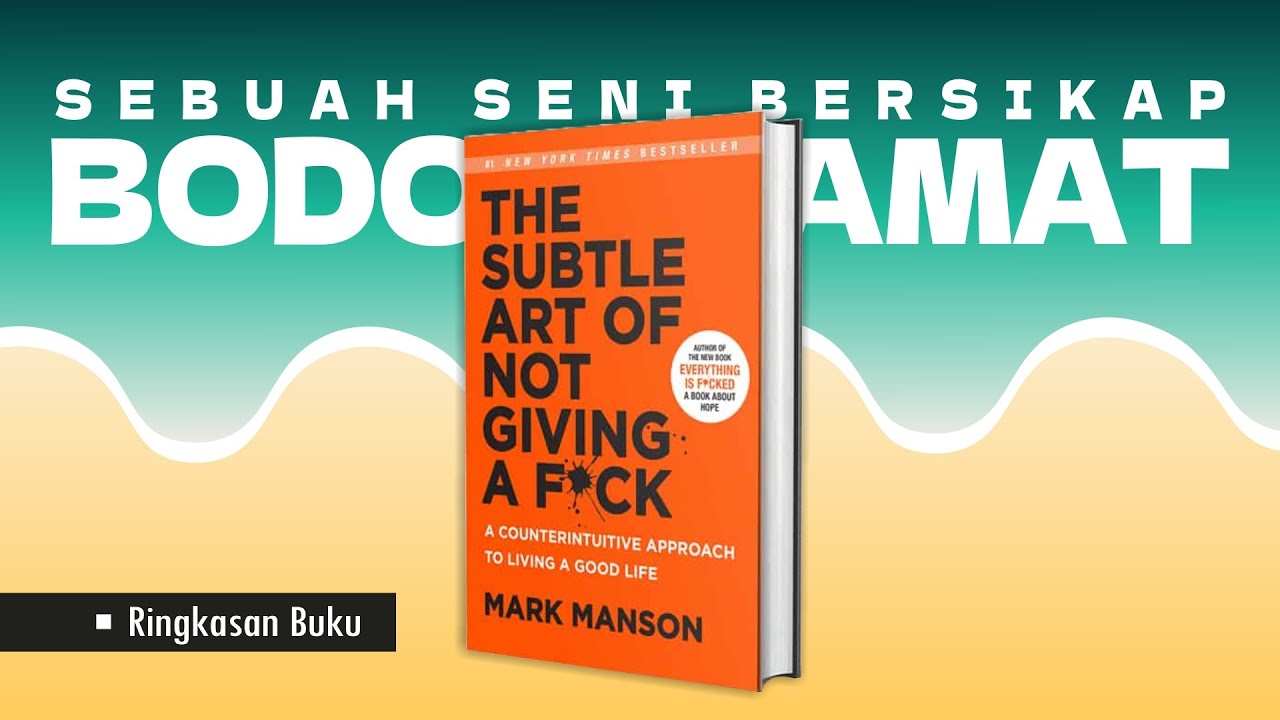The Simple Trick to Stop Caring What People Think
Summary
TLDRIn this video, Mark Manson humorously explores the common desire to stop caring about what others think, explaining that it's a natural human trait rooted in our need for social connection. He delves into the reasons behind our need for validation, tracing it back to evolutionary survival. Manson argues that instead of trying to eliminate this need, we should focus on finding better people to seek validation from. Ultimately, the key is having something more important to care about, which will naturally diminish the power of others' opinions over us.
Takeaways
- 😀 Everyone has a fantasy of not caring what others think, but it's a common struggle.
- 🧐 We care what others think because we're not psychopaths; it's part of being a good human.
- 🤝 Social validation is natural and has both positive and negative effects, leading to connections like friendship and empathy.
- 🐒 Human intelligence evolved due to our highly social nature; social rejection is perceived as dangerous because of our evolutionary past.
- 👥 Humans evolved in tight-knit tribes where social rejection could mean death, which explains why rejection feels so painful.
- 🌍 Modern life offers the ability to change your social circle and find new groups to seek validation from.
- 🔄 The problem isn't caring about validation, but seeking validation from the wrong people—surround yourself with people who respect you.
- 🔥 You will stop caring what people think when you have something more important to focus on, like a meaningful cause or goal.
- 🎯 The more you care about something worth being ridiculed for, the less you'll worry about others' opinions.
- 📝 Ironically, once you stop caring what people think and focus on important goals, people start respecting you more.
Q & A
What is the common fantasy that Mark Manson discusses in the video?
-Mark Manson talks about a common fantasy where people wish they could stop caring about what others think of them, developing perfect confidence that is unaffected by external opinions.
Why does Mark Manson argue that caring about what others think is not entirely negative?
-Mark explains that caring about what others think is a fundamental part of being human and helps build positive traits like empathy, compassion, and friendships. It also plays a role in human survival, as social connections are essential.
How does Mark Manson link human evolution to the need for social validation?
-He explains that humans evolved in small, close-knit tribes where social rejection could be life-threatening. This has ingrained a need for social validation in our nervous system, equating rejection with a survival threat.
What is Mark's perspective on 'not giving a shit' about others' opinions?
-Mark clarifies that it’s not about completely ignoring others' opinions, which would make someone a psychopath. Instead, the goal is to manage whose opinions you care about and focus on those who matter and add value to your life.
What does Mark suggest people do if they find themselves caring too much about what others think?
-Mark suggests that people should change the social groups they seek validation from. Instead of trying to impress selfish or petty individuals, they should surround themselves with people they respect and admire.
What does Mark mean by 'changing your tribe' in modern life?
-He means that in today’s world, people are no longer bound to a single group. If one group rejects or doesn’t respect you, it’s possible to find another group or community that is a better fit.
How does Mark answer the question, 'How do I stop caring what other people think?'
-He explains that people will stop caring when they find something more important to focus on. When a person is driven by a meaningful purpose or goal, external opinions lose their significance.
What is the 'harsh truth' that Mark shares in the video?
-The harsh truth is that if you care too much about what others think, it’s likely because you don’t have something more important in your life to focus on or care about.
What example does Mark use to explain why external validation doesn’t always matter?
-He uses the example of saving a baby from a burning building. In this situation, a person wouldn’t care what others think about their decision to save the child because the task is far more important than the opinions of bystanders.
What is Mark's final piece of advice for people who care too much about others' opinions?
-Mark advises people to find something they are willing to be ridiculed for or something so important that it overshadows the need for social approval. This, he says, is when people will start respecting you.
Outlines

Esta sección está disponible solo para usuarios con suscripción. Por favor, mejora tu plan para acceder a esta parte.
Mejorar ahoraMindmap

Esta sección está disponible solo para usuarios con suscripción. Por favor, mejora tu plan para acceder a esta parte.
Mejorar ahoraKeywords

Esta sección está disponible solo para usuarios con suscripción. Por favor, mejora tu plan para acceder a esta parte.
Mejorar ahoraHighlights

Esta sección está disponible solo para usuarios con suscripción. Por favor, mejora tu plan para acceder a esta parte.
Mejorar ahoraTranscripts

Esta sección está disponible solo para usuarios con suscripción. Por favor, mejora tu plan para acceder a esta parte.
Mejorar ahoraVer Más Videos Relacionados
5.0 / 5 (0 votes)






